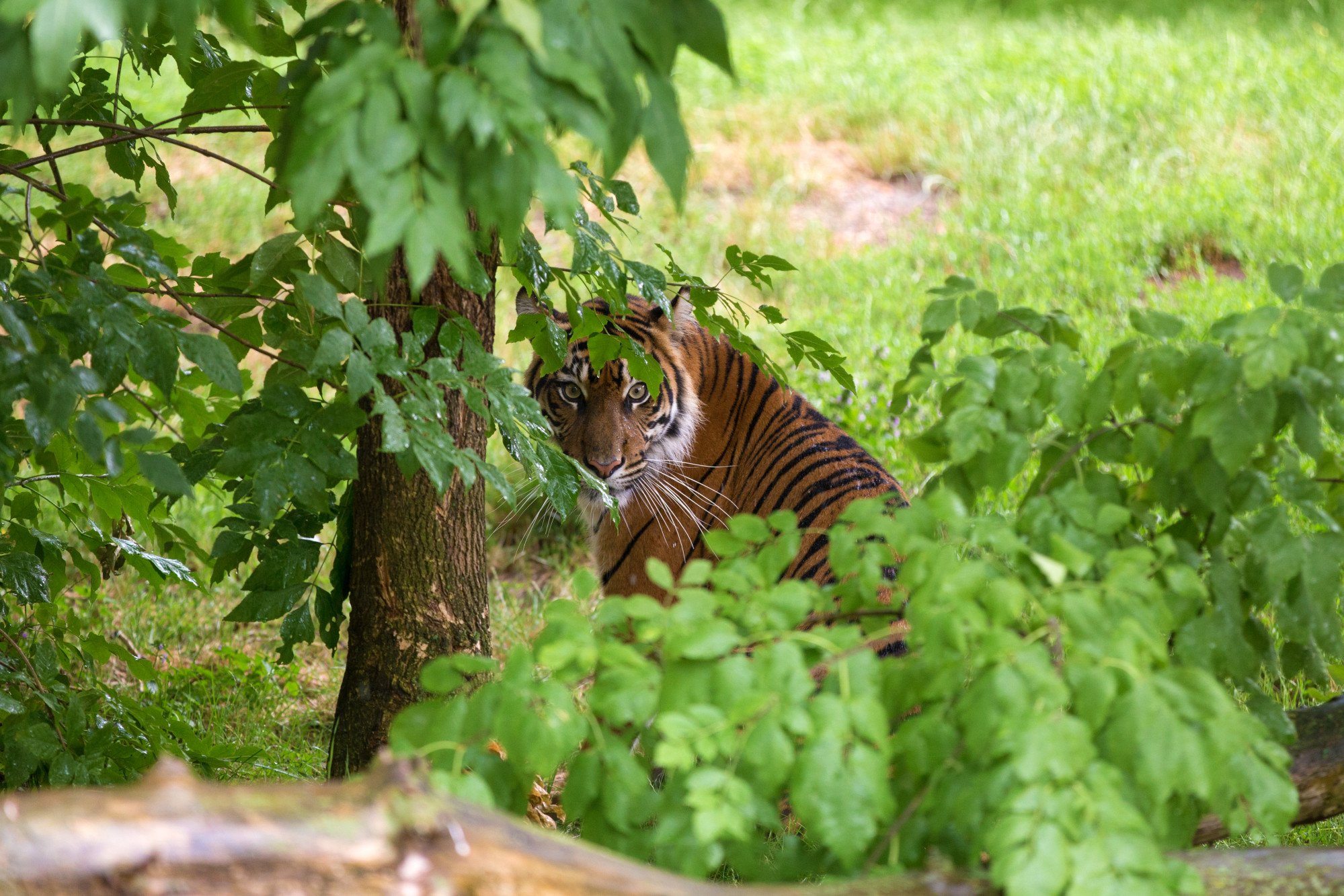Indonesian family urges justice for man killed by boss’ tiger as case highlights exotic animal trade
“This is our first case in five years of a private citizen keeping what we suspect to be a protected animal,” Ari Wibawanto, head of the East Kalimantan Natural Resources Conservation Agency, told This Week In Asia.
Chinese national’s TikTok lion shows Cambodia’s exotic pet problem
Chinese national’s TikTok lion shows Cambodia’s exotic pet problem
The tiger wasn’t the only exotic animal kept by Sugianto, with the agency discovering a menagerie of pedigree dogs and a Bornean Clouded Leopard, which is considered a vulnerable species in Indonesia.
“We duly evacuated the two felines and relocated them to the Gunung Bayan Lestari Animal Sanctuary for evaluation,” Ari said.
Samarinda City Police Chief Ary Fadli said Sugianto had been arrested and was being investigated. “If proven guilty, we will charge him with violating the 1990 Endangered Species Protection Law and causing death by negligence,” he said.
Illegally rearing protected animals carries a maximum sentence of five years’ imprisonment under Indonesian law, as does negligence resulting in the death of a person.
“His boss must be held responsible and punished according to the law for making my brother feed dangerous animals,” Suprianda’s sister Hanifah said.

But getting justice may be a long road for the family.
Ari said the tiger and leopard would have their DNA tested to determine their species as part of the investigation. “If the tiger is Sumatran, as we think it is, the charge [of keeping a critically endangered animal] will stick.”
However, there might be a legal loophole for Sugianto if the tiger turned out to be a non-native Bengal, as the subspecies is not protected under Indonesian law, Ari said.
Indonesia is one of the world’s most biodiverse countries, but illegal trade of endangered flora and fauna within and from the country, estimated to be worth US$1 billion annually, is rife.
The domestic illegal wildlife trade mainly targets the rich and famous, known for collecting and rearing exotic, often wild, animals as pets.
But unlike Sugianto, who did not have permits for his exotic beasts, some Indonesian collectors are able to get licences to legally keep such creatures as pets, and they are not above flaunting their critters for clout.
This is especially common among the rich and famous. Having exotic animals to show off is a power move for them
One such collector is Irawan Andry Sumampaouw, a business tycoon who describes himself as a “tiger lover”. On his Instagram page @kenzo_thetiger, he shares updates with his 148,000 followers about his tigers, dogs and even wallabies reared in his nine-hectare compound in Sukoharjo, Central Java.
Fajar Zakri, an animal rights advocate at Sinergia Animal Indonesia, said he took a dim view of people claiming to love wild animals but choosing to let them live in confined spaces. “I suspect it has more to do with their vanity. This is especially common among the rich and famous. Having exotic animals to show off is a power move for them.”
Fajar also said that instead of championing wildlife conservation, Indonesian celebrities such as actor Raffi Ahmad were promoting the opposite.
Last month, Raffi announced that he was considering investing in a zoo, in partnership with a local entrepreneur, through his company RANS.
‘Feared tiger hunter’ to bee farmer: Indonesian poacher’s change of heart
‘Feared tiger hunter’ to bee farmer: Indonesian poacher’s change of heart
Fajar said changing Indonesians’ perceptions about owning wild animals would take a lot of work. “Public education from an early age that instils a respect for wildlife and nature, instead of seeing them as commodities, would be a good start,” he said.
To help tackle the illegal wildlife trade, conservation chief Ari said his agency would monitor for others illegally rearing wild animals in and near Samarinda.
As for the tiger who killed Suprianda on Saturday, its fate remains uncertain, but after being kept in a cage for years, there is a chance it may be returned to its natural habitat.
“Both the tiger and leopard rescued [from Sugianto] will undergo rehabilitation so that, hopefully, they can be released back into the wild,” Ari said.

